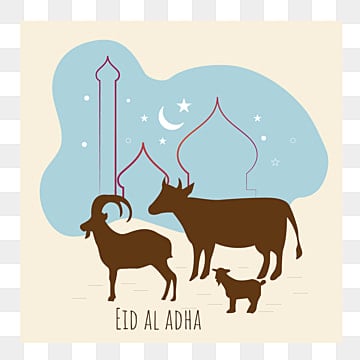The Sacred Eid of Dhul-Hijjah: Significance, spiritual rewards, and the blessings of sacrificial slaughter
As the twelfth and final month of the Islamic calendar, Dhul-Hijjah is among the most sacred periods in the Islamic year. It is during this month that Muslims around the world witness Eid al-Adha, the “Festival of Sacrifice,” a commemoration of Prophet Ibrahim’s (Abraham’s) unwavering faith and submission to Allah’s command.
The Essence of Eid al-Adha
Eid al-Adha falls on the 10th day of Dhul-Hijjah, coinciding with the completion of Hajj, the annual pilgrimage to Makkah, which is obligatory for those who are able, once in a lifetime. This Eid is not only a celebration but also a profound reminder of devotion, obedience, and sacrifice.
The festival honors the moment when Prophet Ibrahim (AS), in total submission to Allah’s will, was prepared to sacrifice his beloved son Ismail (AS). In return for his obedience, Allah replaced Ismail with a ram, sparing his life and accepting the act of sacrifice. This legacy is commemorated by Muslims every year through Qurbani — the act of slaughtering an animal for the sake of Allah.
The Spiritual Benefit of Slaughtering
Slaughtering an animal (sheep, goat, cow, or camel) is not just a ritual, but an act rich in spiritual meaning and reward, and it holds deep ethical and social values in Islam:
1. A Sunnah of Ibrahim (AS)
Performing Qurbani is a revival of the Sunnah of Prophet Ibrahim. It represents submission to the will of Allah, reminding believers of the importance of sacrifice in the path of faith.
2. A Form of Worship
The Qur’an clearly states that it is neither the meat nor the blood that reaches Allah, but taqwa — the God-consciousness and sincerity behind the act (Surah Al-Hajj, 22:37). The act of slaughtering, when done with the right intention, becomes an act of worship.
3. Spiritual Cleansing and Reward
According to Hadith, the Prophet Muhammad ﷺ said:
“There is nothing dearer to Allah during the days of Udhiyah than the sacrificing of animals. The sacrificed animal shall come on the Day of Judgment with its horns, hair, and hooves [to be weighed]. The sacrifice is accepted by Allah before the blood reaches the ground. So, offer it with an open and happy heart.” (Tirmidhi)
READ ALSO: First 10 Days of Dhul-Hijjah: A sacred opportunity for worship, reflection
This Hadith highlights not only the virtue of Qurbani but also the great reward it brings, forgiveness of sins and closeness to Allah.
4. Charity and Social Justice
The meat from the sacrificed animal is distributed in three parts: one for the family, one for relatives and friends, and one for the needy. This ensures that the joy of Eid reaches every segment of society, promoting compassion, equality, and care for the poor.
Conclusion
Eid al-Adha is far more than a festive occasion. It is a time for reflection on one’s relationship with Allah, a renewal of faith, and an opportunity to embody the values of obedience, sacrifice, and charity.
The act of Qurbani serves as a powerful spiritual tool, one that brings immense reward, uplifts the soul, and strengthens the bond within the Muslim community.
As this blessed Eid approaches, may our sacrifices be accepted, our intentions purified, and our hearts filled with gratitude and devotion.
Eid Mubarak!
Follow the Neptune Prime channel on WhatsApp:
Do you have breaking news, interview request, opinion, suggestion, or want your event covered? Email us at neptuneprime2233@gmail.com





